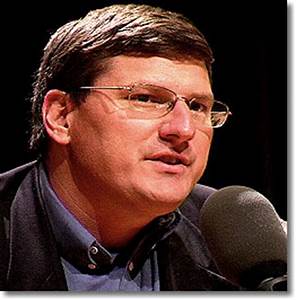The war of words between Russia and the United States over Ukraine escalated further on Tuesday as Russian President Vladimir Putin responded for the first time to the U.S. written reply to Russia's demands for security guarantees that were expressed in the form of a pair of draft treaties submitted by Moscow to the U.S. and NATO in December.
"It is already clear"that the fundamental Russian concerns were ignored. We did not see an adequate consideration of our three key requirements," Putin said at a press conference that followed his meeting with Hungarian Prime Minister Viktor Orban in Moscow.
Putin said the U.S. had failed to give "adequate consideration of our three key demands regarding NATO expansion, the renunciation of the deployment of strike weapons systems near Russian borders, and the return of the [NATO] bloc's military infrastructure in Europe to the state of 1997, when the Russia-NATO founding act was signed."
He detailed what he alleged was NATO's long history of deception, re-emphasizing the 1990 verbal commitment by former U.S. Secretary of State James Baker that NATO would not expand "an inch" eastward. "They said one thing, they did another," Putin said. "As people say, they screwed us over, well they simply deceived us."
With some 130,000 Russian troops deployed in the western and southern military districts bordering Ukraine, and another 30,000 assembling in neighboring Belarus, U.S. policy makers are scrambling to figure out what Russia's next move might be, a choice most U.S. policy makers believe boils down to diplomacy or war.
Rather than examine the situation from the perspective of Russian national security interests, however, these officials have placed the fate of European peace and security in the hands of a single individual: Vladimir Vladimirovich Putin.
Interests of an Entire Nation
n a recent article in The Atlantic, Tom Nichols opines that "no one really knows why Putin is doing thisor whether he really intends to do it at all. It is unlikely that his own inner circle even has a good read on its boss."
Even the president of the United States, Joe Biden, professed a sense of frustration at not knowing what Putin's objectives are vis-Ã -vis Ukraine. "I'll be completely honest with you," Biden said last month, "it is a little bit like reading tea leaves" when it came to predicting Putin's next move.
The fact that the U.S. president is at a loss when assessing Russia's next move regarding Ukraine should send a shiver up the spines of all concerned Americans. One of the main reasons for this confusion lies in the emphasis Biden placed on the importance of only what Putin was thinking, as opposed what the legitimate national security interests of Russia were.
This problem is not unique to the present circumstance, but rather is part and parcel of a national obsession with Putin the man that obviates the reality that Russia is a country whose interests are greater than any single individual, no matter how long serving or powerful.
The problem with focusing on an individual as the embodiment of a nation is that one is trying to solve the wrong problem. Russia's ongoing issues with Ukraine are larger than Vladimir Putin, and as such, far more complex in defining national goals and policy boundaries. You can't solve a problem unless you first accurately define the problem; by tying the problem of Ukraine to one man, American policy makers are, in effect, dealing with the wrong problem.
This disconnect from reality is further exacerbated when, as is the case with the majority of so-called "Russian experts" prevalent in America today, one seeks to play amateur psychiatrist by getting into the mind of the Russian leader.
Take, for example, Michael McFaul, the architect of Barack Obama's infamous policy "reset" with Russia (a little-disguised effort designed to squeeze Putin out of power and replace him with the ostensibly more compliant Dmitry Medvedev). The title of his policy memoir, From Cold War to Hot Peace: An American Ambassador in Putin's Russia says it all. If you think you have the ability to define the character of an entire nation through the persona of a single named individual, you should be able to provide some insight into the thinking of that person.
But as McFaul himself admitted recently on MSNBC, "I want to state categorically that I don't know what Putin wants. I don't know what he's decided. President Biden doesn't know. The director of the CIA [William Burns] doesn't know. I don't think Sergei Lavrov knows, the foreign minister."
A moment of honest humility? No; McFaul continues: "And from my experience dealing with Putin in negotiations, I don't think he has made his own decision yet. I think that he likes this uncertainty. He likes that we're all talking about, you know, negotiating with ourselves, making counter proposals. He likes to watch that."
(Note: You can view every article as one long page if you sign up as an Advocate Member, or higher).





